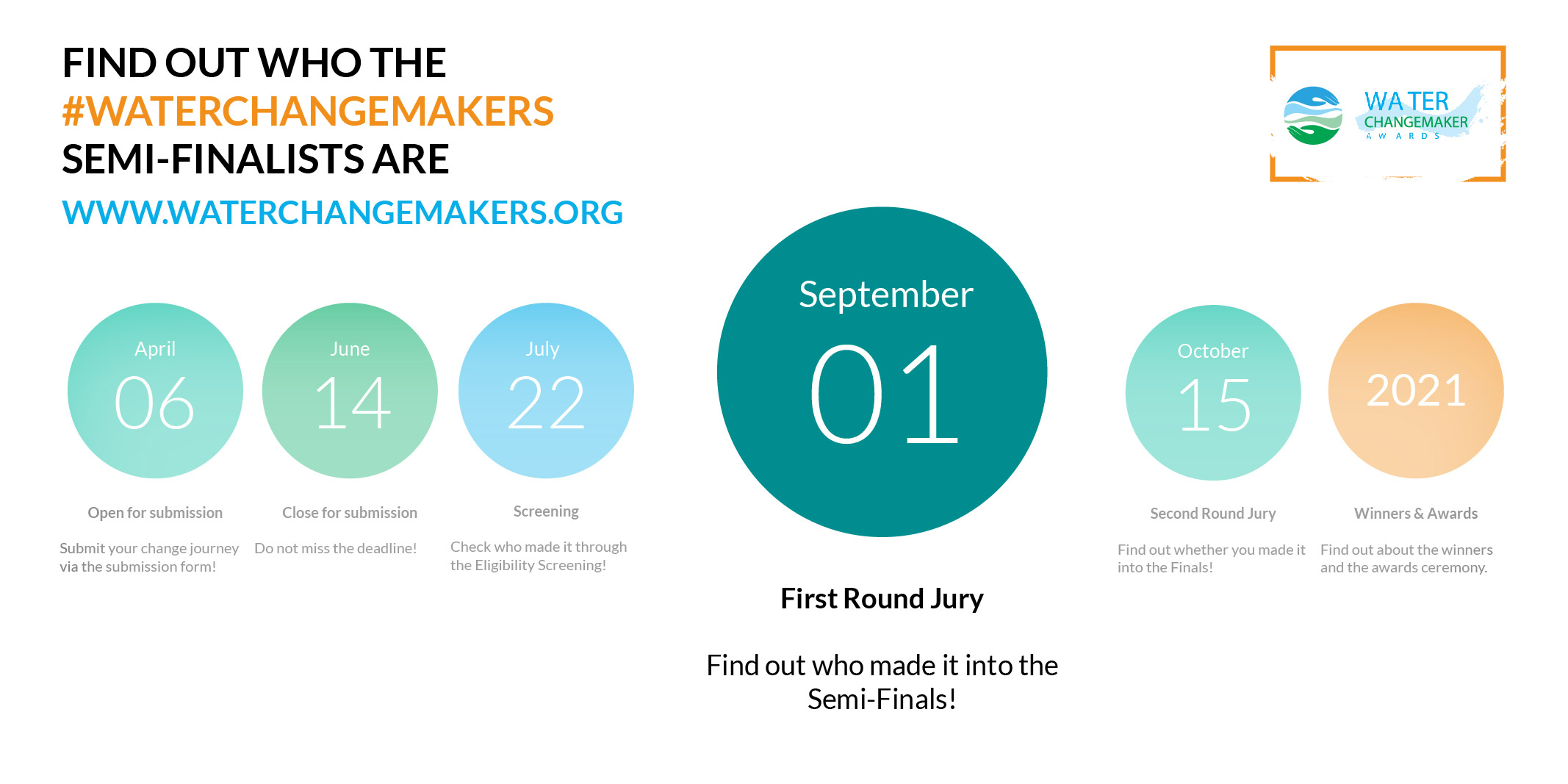During this process, the jurors that selected the 78 semi-finalists were truly impressed and inspired by the brilliant and creative solutions received from around the world to manage water better in the face of climate change.
In particular, the submissions demonstrate how to leverage technology to solve common water-related challenges; to acknowledge the critical role of gender and social equity; and to engage all stakeholders in making decisions over shared water resources.
“It was inspiring and eye-opening to learn about so many wonderful initiatives to manage water better in the face of climate change. The submissions show how much local-level initiatives - sometimes led by just one or a few individuals, often with few resources and almost always with a slew of challenges - can make communities more resilient to climate change”, said Dambudzo Josephine Muzenda, Water & Sanitation Specialist, World Bank, who was one of the jurors.
Change journeys
Approximately half of the changes that were catalyzed in the submissions sought to strengthen institutional capacity and participation and dealt with issues such as integrity and transparency in decision-making. One-third of the semi-finalist submissions were sent to us by youth, demonstrating their dynamism as change agents. The full change stories of the submissions will be shared in the coming weeks on the Water ChangeMakers website.
The Water ChangeMaker Awards are designed to find, celebrate and make visible teams and organisations who have shaped decisions about water that have helped build climate resilience. We look to collect these journeys, through the submissions towards the Awards, in order to create the opportunity for knowledge exchange and learning processes. Some 27 Partners are associated with the programme for that to happen.
What’s next?
It is important to remember that the Awards are not an end in themselves, but also a way to bring people together to create inertia for action around common challenges in a new way, and contribute with fresh, inspiring initiatives and stories that will contribute new insights to the GWP IWRM Toolbox.
This has become even more important in the context of the new normal we are operating under the COVID pandemic. We are currently designing opportunities for different communities of ChangeMakers to interact and learn from each other and the GWP Network.
A second stage jury of thought leaders will convene in October to consider additional input to the submissions and determine the list of finalists, with winners to be announced in early 2021. GWP’s Technical Committee has also been recruited to analyze the submission contents with the aim of creating a publication to be launched next year on lessons learned about making positive change happen for water and climate resilience. There is more excitement to come!

